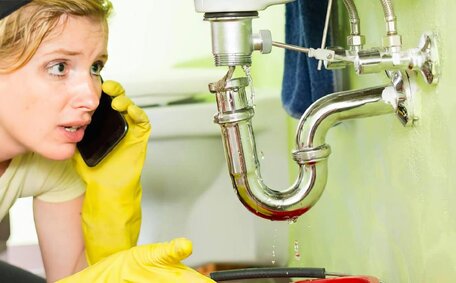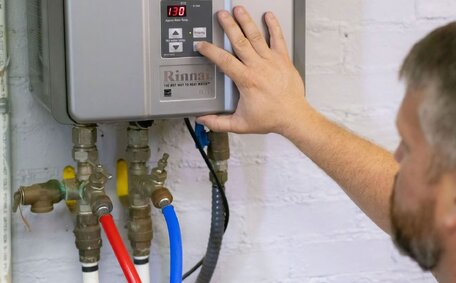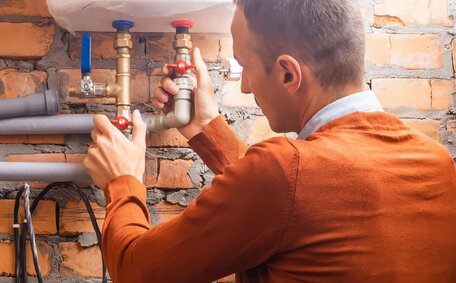Introduction to Gas Pipeline Lifespans
The lifespan of gas pipelines is no longer just an important consideration for homeowners and industry professionals. As infrastructure ages, understanding longevity enables proper maintenance, safety precautions, financial planning, and environmental impact mitigation.
Typically, a gas pipeline can last upwards of 100 years. However, variability exists due to pipe materials, soil conditions, usage levels and maintenance practises. Monitoring and upkeep are crucial, yet many pipelines no longer function properly due to corrosion, excavation accidents, or simple old age.
What was state-of-the-art years ago may now present safety issues. environmental concerns also arise when pipelines inevitably need removal or abandonment. With the world moving towards renewable energy, how a traditional gas pipeline would fare in the future remains unclear.
As seasoned Sydney plumbers with decades of industry expertise, Ashfield Plumbing comprehends the nuances around gas pipeline lifespans. As seasoned Sydney plumbers with decades of industry expertise, Ashfield Plumbing comprehends the nuances around gas pipeline lifespans.
Yet others have no longer sustained their performance and faltered early. This article will cover the key factors affecting gas pipeline durability.
Typical Lifespan of Gas Pipelines
Gas pipelines are typically engineered to last approximately 50 years. Improvements in materials and construction methods over the decades have increased this original lifespan estimate. Ductile iron, plastic and protected steel pipes now boast improved durability and corrosion resistance.
Yet the lifespan of a pipeline would vary drastically in real-world conditions. Ashfield Plumbing frequently services pipelines installed in the 1960s and 1970s that remain functional. Conversely, some pipes installed 15 years ago already show signs of failure.
A multitude of factors determine whether a gas pipeline survives past its designed 50 year service life. Proper maintenance and operating conditions are key. Environmental factors also play a role, with acidic soils, stray electrical currents and damage from nearby construction shortening longevity.
Factors Affecting Gas Pipeline Longevity
Many factors affect how long a gas pipeline remains functional before requiring replacement. Steel corrosion, usage intensity, materials quality and environmental conditions all impact durability.
Corrosion is the primary threat to steel gas pipelines. Corrosion is the primary threat to steel gas pipelines.
Moist and acidic soil accelerates the decay, as does stray electrical current from nearby power lines. Ashfield Plumbing often discovers corrosion issues during maintenance checks on older Sydney pipelines.
Gas flow volume and pressure place stress on pipelines. Heavy usage necessitates earlier replacement than lines servicing limited connections. Sudden spikes in demand can also damage materials.
Nearby excavation mishaps similarly shorten lifespan.
Material quality significantly affects pipeline lifespans. Modern polymers and epoxy-lined steel enjoy improved longevity thanks to technological advancements. However, some legacy pipes still operate despite inferior materials prone to cracking or leakage over time.
Environmental factors like soil composition, proximity to coastal saltwater and seasonal freeze/thaw cycles present additional decay mechanisms that pipelines must withstand. Here in Sydney, acidic clay soils are particularly problematic.
Whilst modern design standards enable 50+ year lifespans, flaws in construction, maintenance or operating conditions often cut pipelines short. Careful monitoring and upkeep is crucial for long-term functionality.
Role of Maintenance in Extending Pipeline Lifespans
Regular maintenance is crucial for gas pipelines to reach or exceed their designed lifespans. Industry standards recommend professional inspections every 5 years to detect potential issues early. Yet many homeowners neglect this until problems arise.
During maintenance checks, plumbers would utilise specialised leak detection equipment alongside visual assessments of pipeline integrity. This enables identifying corrosion, cracks or erosion issues before they no longer satisfy safety or functionality standards. It also avoids the expense of premature replacement.
Essentially, proper maintenance would reduce the risks of ground sinking, gas leaks, explosions and other hazardous pipeline failures. It extends the years of safe usage by keeping pipe materials intact. With good upkeep, gas lines often outlast initial lifespan estimates by decades.
Here at Ashfield Plumbing, we no longer rely on outdated methods and instead incorporate the latest maintenance techniques including robotic CCTV pipe inspections. This thorough approach ensures the continued, reliable performance of pipelines across Sydney. It also gives clients confidence in the safety, integrity and longevity of their gas infrastructure.
Adhering to the 5-year professional inspection schedule is the best way to ensure a gas pipeline would maximise its lifespan. For the average homeowner, this maintenance investment pays dividends in preventing costly emergency repairs or replacement. It also reduces risks to life and property when issues inevitably arise in ageing pipe networks.
Economic and Environmental Considerations
The lifespan of gas pipelines has economic implications for property owners, operators and governments. Investments no longer just presume decades of return, as renewable energy transitions may cut profitability short.
Decommissioning a pipeline would also incur major expenses. Proper financial planning ensures sufficient funds exist when functionality ends. Yet some owners face unexpected early replacement costs if pipes deteriorate prematurely.
Environmental concerns also arise around ageing gas infrastructure. Methane leaks, potential explosion hazards and soil contamination threaten surrounding ecologies. However, many view natural gas as a transitional energy source - cleaner than coal yet not renewable.
The rise of low-emission power sources could truncate the presumed 50+ year economic lifespans of new pipelines. Investors may baulk at projects with such uncertainty. Renewables progress slowly, but the clock ticks faster on infrastructure timelines.
Ashfield Plumbing helps clients navigate these decisions at pipeline end-of-life stages. With decommissioning quotes spanning $300 to $500 per metre, replacement planning is essential. We also consult on integrating renewables like solar alongside gas usage to ease the eventual transition off fossil fuel dependencies.
Transitioning Away from Gas Pipelines
As the world moves towards renewable energy to reduce emissions, traditional gas pipeline infrastructure faces an uncertain future. With solar, wind and other clean power sources advancing, many countries aim to curb fossil fuel reliance - gas included.
This energy transition affects gas pipeline lifespan considerations. Investing in new lines no longer seems as secure if demand shrinks in coming decades. Even how a pipeline would be maintained warrants evaluation if usage and profits dwindle.
Decommissioning poses the greatest challenges. Safely removing and replacing vast underground networks becomes cost-prohibitive, tempting authorities to simply abandon defunct pipes. Yet without remediation, leakage, ground subsidence and explosion dangers are no longer preventable.
Ashfield Plumbing helps clients navigate these transitions. For new builds, we consult on integrating electric heat pumps, solar hot water and other renewable options to reduce gas dependence. We also provide accurate decommissioning quotes to inform replacement decisions for ageing pipelines.
Rather than a wholesale switch, hybrid approaches help ease the transition. Blending gas with renewables using smart systems maintains flexibility, just as a modern pipeline would. Gradually swapping sections lets network operators spread costs over years as supply/demand changes.
Sydney’s gas future remains uncertain. But with over 50 years of experience, Ashfield Plumbing brings practical guidance. We stay current on the latest renewable technologies so clients can make informed pipeline and heating choices.
Decommissioning Gas Pipelines
Decommissioning gas pipelines no longer just involves abandoning pipes underground or full removal. Both approaches adhere to strict processes per industry regulations to prevent safety issues or environmental harm.
Abandoning a pipeline would involve ends being capped and contents purged. Companies then monitor leftover materials long-term to ensure no ongoing leakage into surrounding soil. However, transfer of ownership leaves questions around enduring liability.
Full removal no longer just restores sites but also incurs substantial costs, around $300-$500 per metre. Specialist teams extract all infrastructure and debris before backfilling. Lengthy road disruptions frustrate residents as crews dig down 3 metres or more.
With over 50 years locally, Ashfield Plumbing manages decommissioning projects across Sydney. We handle all technical aspects whilst liaising with councils and utilities. Our quotes outline options for scope and costs to inform decisions.
For residential lines, DIY removal risks hitting other infrastructure, and contaminated landfills often reject piping. Instead, we recommend professional organisations to contain environmental impact. Ensuring safety would be paramount in a pipeline with flammable product residues.
Decommissioning gas pipelines poses complex challenges, especially for ageing cities like Sydney. Proper processes no longer just avoid lasting issues; most restoration mindfully blends remediation with pragmatic reuse of resources.






